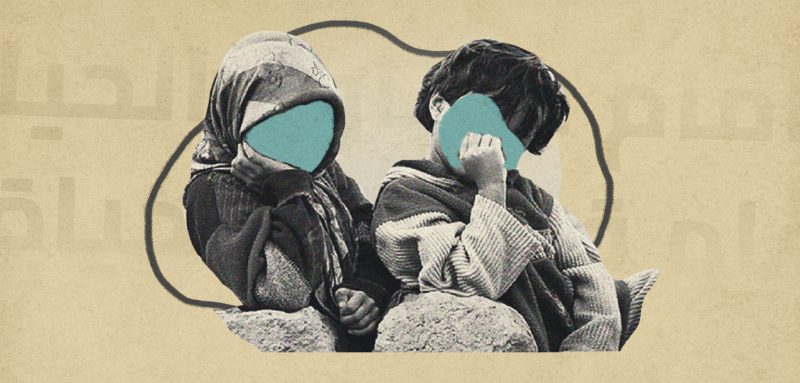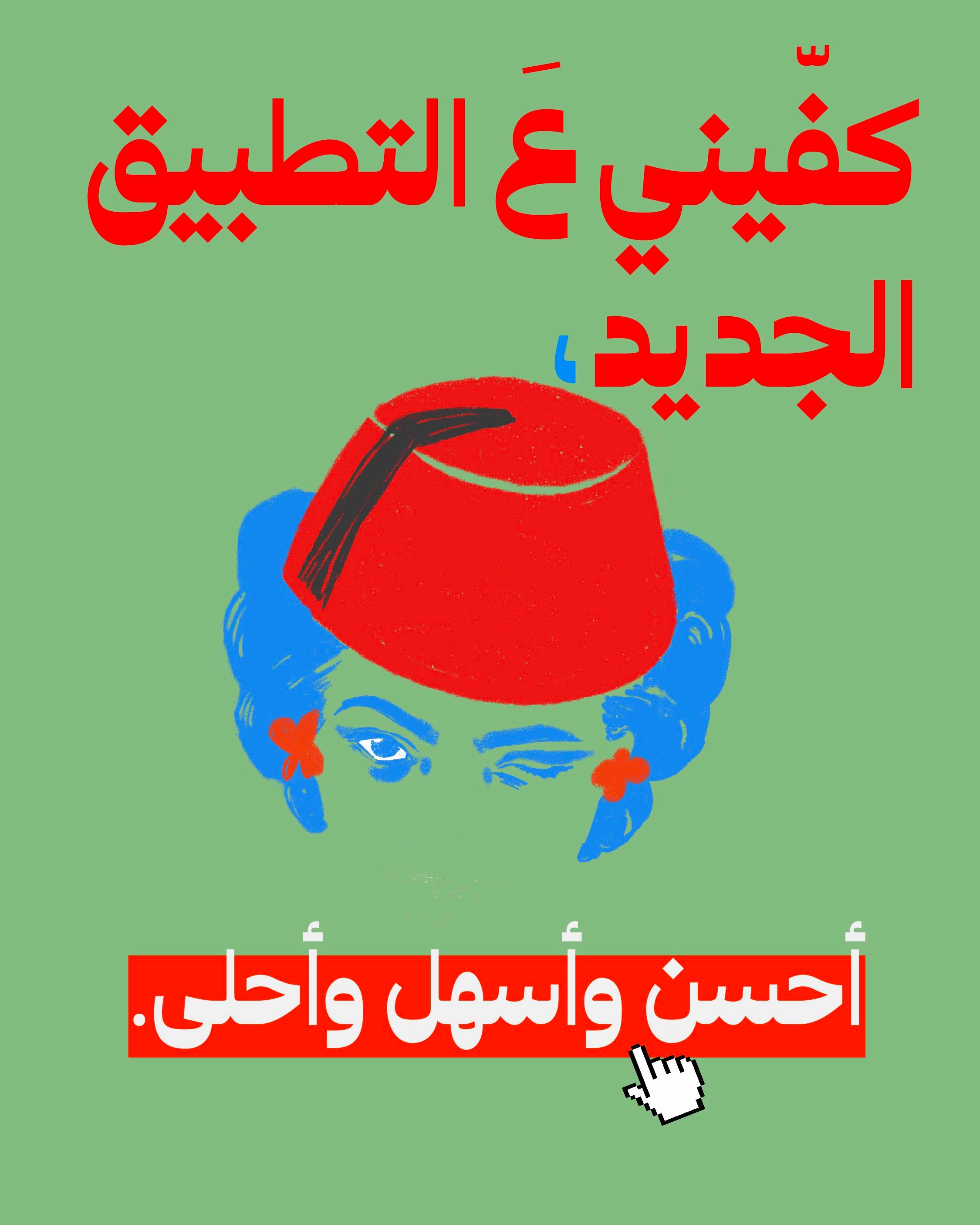On Habib Bourguiba street in the capital Tunis, not far from the Ministry of Women, Children and Family Affairs, dozens of children walk around with tissue packs and flowers in their hands, trying to persuade customers to buy them.
These children are of all ages, some of whom are under ten years old. They were forced to leave their homes out of necessity and the need for survival and were thrown into the streets, finding themselves between a reality full of suffering and an unknown future that may be even harsher.
Begging for a living
Not far from Al-Fath Mosque, at al-Joumhouria station, fifteen-year-old Noor stands in her boyish clothes that cover her entire body, laden with tissues, and trying to persuade commuters to buy her goods from her at a low price.
Noor tells Raseef22 that her journey begins before six o'clock in the morning. She chooses crowded places where there’s lots of foot traffic so that she can sell her goods, adding that she sometimes encounters kind passers-by who offer her money without buying tissues from her, and sometimes others who meet her with violence and cursing because of her insistence on selling them her goods.
Noor says she became an orphan after her parents died in a traffic accident years ago, and that her brother migrated illegally, and she hasn’t heard any word of him and doesn’t even know whether he’s alive or dead. She dropped out of school after her neighbors, a family that had been helping her, backed out of aiding her to complete her studies. She then decided to go out onto the streets to search for her livelihood and earn money that she later shares with a fifty-year-old man who supplies her with goods daily.
"Friday’s blessing"
Every Friday, as soon as the muezzin announces the call to Friday prayers, Mohammed, Ahmad and Saber stand in front of Al-Fath Mosque, in hopes that the hearts of worshipers would soften and they’d be given whatever money they can get to afford their daily sustenance.
At the end of the prayer, the children rush up to the worshippers as they leave, repeating quiet pleas for money. Mohammed tells Raseef22 that most of the worshippers do not refuse their requests, but the problem is that the number of children who are coming to the mosque has increased, so he can no longer obtain the same amount he used to before. He adds that worshippers have started to become annoyed with us and do not believe us when we reach out to ask for money.
Every week, as soon as the muezzin announces the call to Friday prayers, Muhammad, Ahmad and Saber stand in front of Al-Fath Mosque, in hopes that the hearts of worshipers would soften and they’d be given some money to afford their daily sustenance
Mohammed, who dropped out of school at the tender age of ten, tells Raseef22 that he has been living on the street for six years after his father died, and has to make money in order to help his mother and younger sister, who is only eight years old, and he sometimes takes her with him to beg in cafes.
Mohammed recounts his ordeals with tears in his eyes, and says that the rain every winter makes the nights he spends on the street that much more harsher, leaving him shivering in the cold.
Increasing numbers
In a statement to Raseef22, the Minister of Women, Children and Family Affairs Amal Moussa reported that more than 2,300 children in Tunis are living on the streets and are at risk. She added that in 2022, child protection delegations received about 1,750 notifications related to neglect and homelessness, and more than 500 notices related to children being exposed to begging practices and economic exploitation. The Minister indicated that this phenomenon has worsened by 10 percent compared to the previous year, and includes infants who are brought along by their parents or siblings in their early teens.
More than 2,300 children in Tunisia live on the streets and are at great risk. Despite the state's attempts to establish shelters for them, the phenomenon continues to rise
The president of the Tunisian Association for the Defense of Children's Rights, Moez Cherif, tells Raseef22, “There are children of non-Tunisian nationalities on the streets as well, and their number reached 400 children in 2022, and all of them are without support.”
Concerning the categories and groups of children living on the streets, Cherif confirms that there is a category that has not severed ties with its educational institutions and families, and another group that has severed all ties with the educational institution but remained in contact with the family, while the third category – which he says is the most vulnerable – has completely severed its ties with both the family and educational institutions. This necessitates the provision of alternative programs for their rehabilitation because they are in a fragile psychological situation.
Shelters for street children
The Minister of Women, Children and Family Affairs Amal Moussa confirms that the ministry has been working for some time to curb this phenomenon, as it has begun to strengthen child protection centers in the Tunisian capital with a capacity to accommodate about 150 children per day.
Moussa says that this initiative will gradually expand to include day and night care for this category, and will move to other areas where this phenomenon is prevalent. The plan enables children to access a range of services distributed between support and educational, health and psychological care.
Tunisian government agencies have begun strengthening child protection centers in the capital with a capacity to accommodate about 150 children per day
She points out that this project will also undertake the search for alternative paths for children who have dropped out of school and found themselves on the street, in order to protect them from the risks and danger on the street, and from a state of listlessness and lack of future prospects.
The minister says that, through this experimental initiative, she seeks to overcome the phenomenon of homeless street children, which is a worrying phenomenon in Tunisia, a country that is facing a number of crises on the economic and social aspects.
Speaking on the same issue, Cherif stresses that the aim of this plan is to protect children living on the street, care for them psychologically and socially, as well as rehabilitate them and enable them to integrate and reconnect with their families.
In the absence of a family to reconnect with, Cherif states that the state can seek out alternative foster families for the child’s nurture and care, while the child's situation is continuously followed up and monitored.
The Tunisian authorities are seeking other solutions that are aimed at rescuing street children, in cooperation with civil society organizations, to reduce the risks facing homeless children on the streets, after the economic crisis caused more than one million students to leave educational institutions in the past ten years. However the question remains: Are shelters the real solution to curb the phenomenon of street children in Tunisia, or is the solution a comprehensive economic reform that enhances the social safety and security of families and therefore their most vulnerable members; children?
رصيف22 منظمة غير ربحية. الأموال التي نجمعها من ناس رصيف، والتمويل المؤسسي، يذهبان مباشرةً إلى دعم عملنا الصحافي. نحن لا نحصل على تمويل من الشركات الكبرى، أو تمويل سياسي، ولا ننشر محتوى مدفوعاً.
لدعم صحافتنا المعنية بالشأن العام أولاً، ولتبقى صفحاتنا متاحةً لكل القرّاء، انقر هنا.


